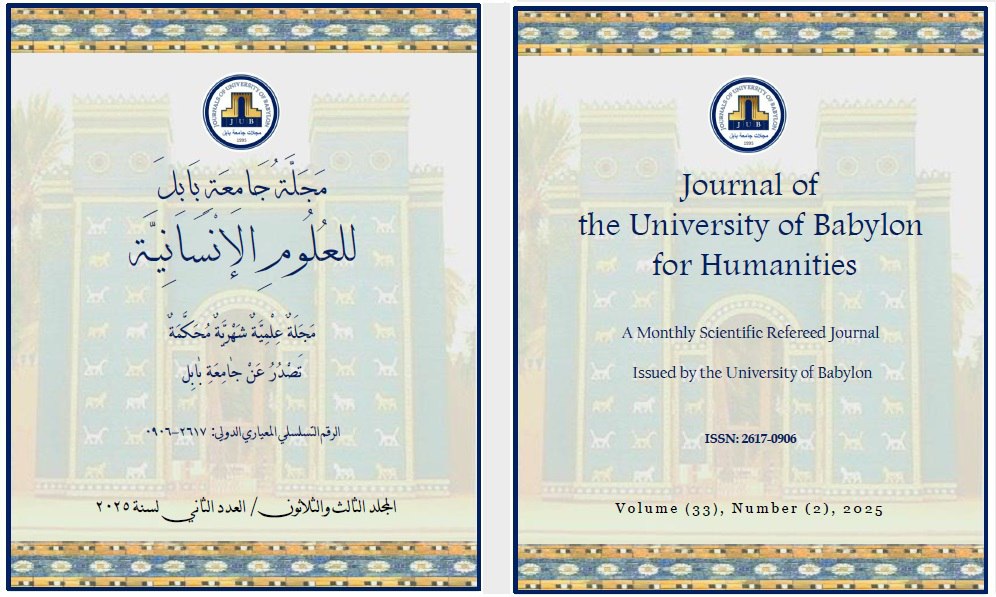Employing Security Media in Contemporary Iraqi Theatrical Texts: The Play “Agencies” as a Model
Main Article Content
Abstract
This research examines "The Employment of Security Media in Contemporary Iraqi Theatrical Texts: The Play 'Agencies' as a Case Study" to investigate the explicit and implicit manifestations of security media within the structures of theatrical texts and their intellectual and aesthetic impact on the audience. Arab theatrical texts have drawn on global theatrical traditions to employ security media, utilizing its role in addressing issues relevant to the Arab individual and the socio-political disturbances that shape their experiences. These texts leverage culturally and expressively unique elements to transform theatrical works into platforms for security media, aimed at delivering impactful messages to the audience.
Similarly, Iraqi theatrical texts have integrated security media to address societal issues, highlight the concerns of citizens, and raise awareness about the realities of ongoing conflicts. Through their works, playwrights play a crucial role in fostering awareness and revealing the influence of security media on Iraqi thought and decision-making.
The study consists of four chapters. Chapter One, the Methodological Framework, discusses the research problem, articulated as the question: "What is security media, and how is it employed in contemporary Iraqi theatrical texts, with the play 'Agencies' as a case study?" The significance of the research lies in exploring the nature of security media and its societal impact, serving as an academic resource for students of fine arts. The objective of the research is to identify the use of security media in Iraqi theatrical texts, with a focus on "Agencies" (2014) by Ammar Naama Jabir. The scope of the research is limited to the year 2014 and the study of Iraqi theatrical texts. The chapter concludes with definitions of key terms.
Chapter Two, the Theoretical Framework, includes two sections. The first explores the concept of security media and the philosophical theories that address its role across various aspects of life. The second examines the employment of security media in global theatrical texts, including Western, Arab, and Iraqi works. The chapter concludes with a review of previous studies and the theoretical framework's indicators.
Chapter Three, the Research Methodology, analyzes the play "Agencies" as the primary sample for this study.
The researchers reached the following conclusions:
- Philosophy has a direct impact on media in general and on societal security in particular, as reflected in theatrical texts in an aesthetic manner.
- Combating rumors was evident as a deterrent against misinformation spread through media within society, as portrayed in theatrical works.
- Exposing corrupt individuals and safeguarding public funds were among the playwright's key priorities within their media-oriented approach.
- The playwright employed counter-security propaganda as a media tool to confront terrorism and extremism through theatrical presentation.
The study concludes with recommendations, suggestions for future research, references.
Article Details

This work is licensed under a Creative Commons Attribution 4.0 International License.

